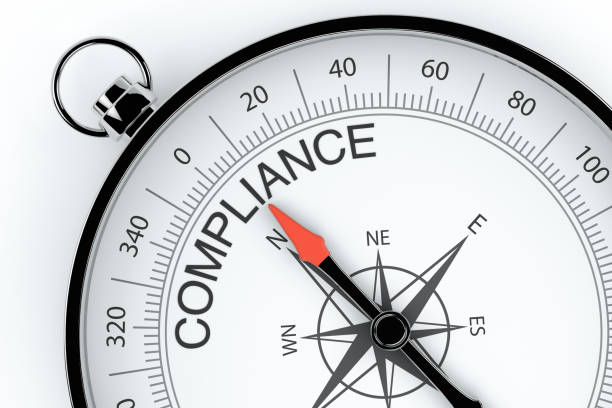Blog by Valarie Waswa
In Kenya, our mobile devices aren’t just gadgets—they’re essential for work, education, and staying connected to family and friends. But recent changes in how the Communications Authority of Kenya wants to handle mobile device compliance might have you thinking twice about what that smartphone in your pocket really represents. Starting January 1, 2025, the Communications Authority of Kenya will require every mobile device in Kenya—whether imported, assembled, or connected to a local network—to meet new tax compliance requirements.
If you’re wondering how a tax compliance directive could mean more than just extra paperwork, you’re not alone. This directive has raised questions about privacy, accessibility, and the fine line between public security and personal surveillance. Let’s unpack the Communications Authority of Kenya’s move and why it has the digital rights community, and maybe you, a bit concerned.
What’s in the Directive?
The Communications Authority of Kenya’s new requirements make tax compliance a prerequisite for mobile devices to connect to local networks. Here’s what that means for everyone involved in the mobile industry:
- For Local Assemblers: They need to upload each device’s International Mobile Equipment Identity (IMEI) number to a portal managed by the Kenya Revenue Authority.
- For Importers: All import documents must disclose the IMEI number, helping track each device’s compliance.
- For Retailers and Wholesalers: Only tax-compliant devices can be sold. So if you’re a tech retailer, it’s your job to verify that your inventory passes the compliance test..
- For Mobile Network Operators: Before activating any device, operators have to check that it’s on the Communications Authority’s whitelist of compliant devices.
And here’s where it gets a bit spooky—if a device isn’t compliant, the Communications Authority of Kenya expects network operators to “graylist” it. This means that device users will have a set period to get their devices in compliance, or else—blacklist time.
Privacy or Surveillance?
Sure, tax compliance sounds straightforward. But how many of us realized that meeting it could mean giving up more than our share to the taxman? When you register a device by its IMEI, you’re tagging it with a unique identifier that tracks it as it moves through networks. Essentially, this makes your device traceable at all times.
Why does that matter? Well, Article 31 of the Kenyan Constitution guarantees our right to privacy, and many Kenyans see these new measures as edging dangerously close to infringing on that right. Tracking device compliance via IMEI means tracking every compliant device—and by extension, tracking every user.
Imagine the potential for abuse if this data isn’t tightly secured. Without proper data protection mechanisms in place, we might be handing our whereabouts, communication patterns, and potentially sensitive information over to any entity with access to the database. And if recent global history has shown us anything, it’s that data meant to protect can just as easily be exploited.
For the People, or Against?
Another major concern is how this policy could affect affordability and access to mobile technology. Tax compliance isn’t free; it’s a process that might increase the costs for device manufacturers, assemblers, and retailers, which, of course, get passed on to consumers. And who bears the brunt of this? It’s likely those who rely on lower-cost devices that may not make it through the Communications Authority’s tax compliance screening unscathed.
Moreover, while existing devices are exempt if they’re connected before November 1, 2024, new buyers or those looking to replace a device after that date might face limitations. This could lead to a situation where Kenyans without access to compliant devices are cut off from essential mobile services, further widening the digital divide.
Digital Rights and What’s at Stake
From the start, Kenya’s ICT sector has driven change, innovation, and accessibility. But now, many worry that such strict compliance measures may stifle that very growth. In a world that’s already moving fast toward increased surveillance, these requirements could set a precedent for greater monitoring without the consent of Kenyan citizens.
Digital rights advocates argue that we’re looking at the beginning of a slippery slope. Once a government has access to a list of compliant, traceable devices, the potential for misuse becomes very real. The line between tax compliance and surveillance is blurry, and without strong checks, it’s all too easy to veer into a territory where the government, and potentially other entities, can monitor citizens without oversight.
What Needs to Change?
If this directive is going to serve Kenyans’ interests, the Communications Authority of Kenya will need to add some transparency and protection to the process. Here’s how:
- Data Protection is Key: The Communications Authority needs to establish strict guidelines on data access, use, and retention. Who gets to see our data? For how long? And what happens if something goes wrong? Citizens deserve clear answers.
- Public Consultation and Oversight: Major decisions affecting digital rights should involve public feedback. This ensures that policies are people-centered and that Kenyans have a voice in shaping their digital future.
- Keeping Devices Affordable: The Communications Authority of Kenya could work to ensure compliance doesn’t mean costly. Making policies inclusive and accessible will help bridge the digital divide, rather than widen it.
- Independent Oversight: An independent body overseeing the implementation of this directive could help keep privacy violations in check, ensuring that these measures genuinely serve the public.
The Takeaway: Tax Compliance or Surveillance Strategy?
The Communications Authority of Kenya’s tax compliance directive might look like a simple policy on the surface, but it has serious implications for privacy, accessibility, and freedom in Kenya. As Kenyans, we must stay vigilant and informed, asking ourselves if policies like this align with our rights and values. It’s up to us to question, critique, and push for the transparency and safeguards we deserve
![]()




